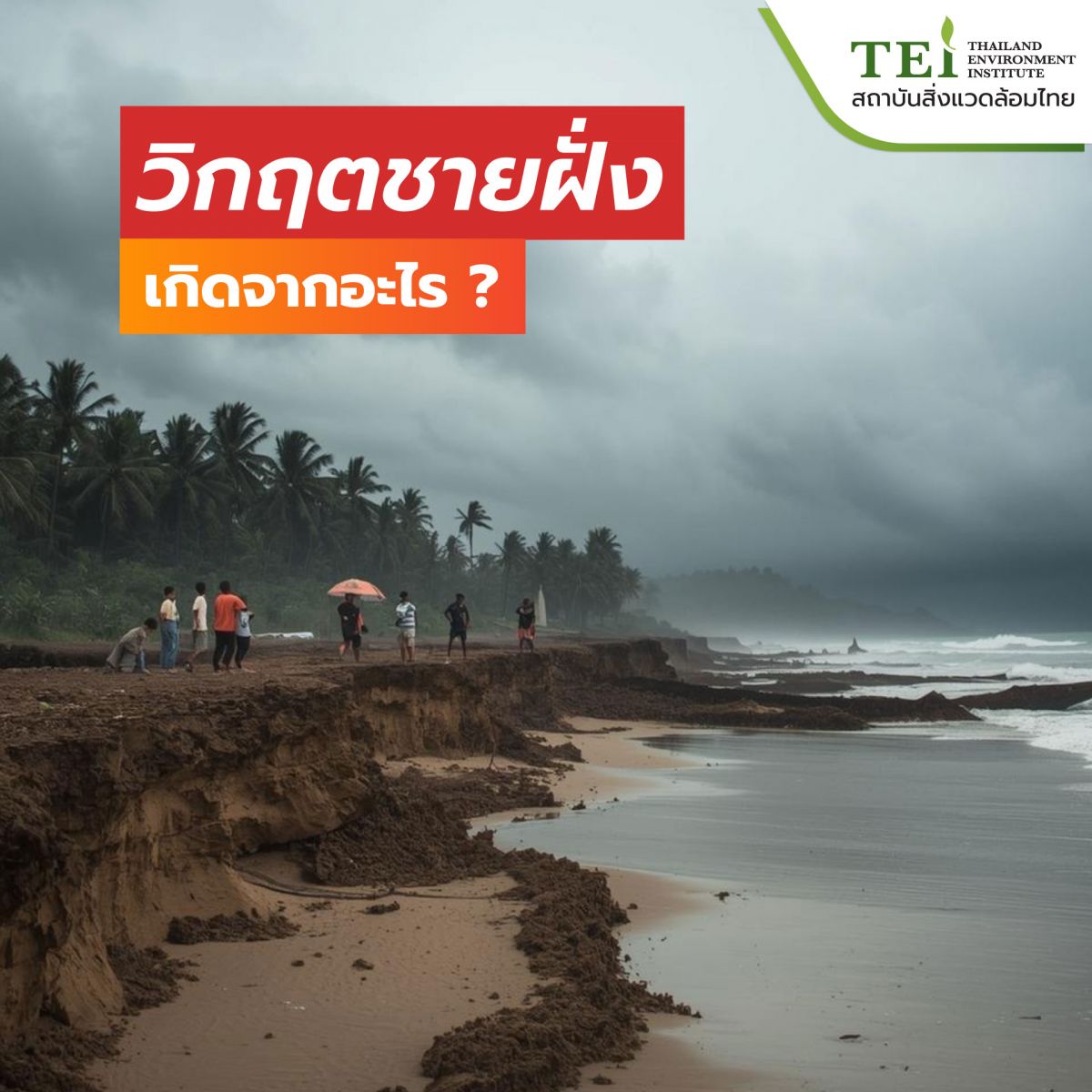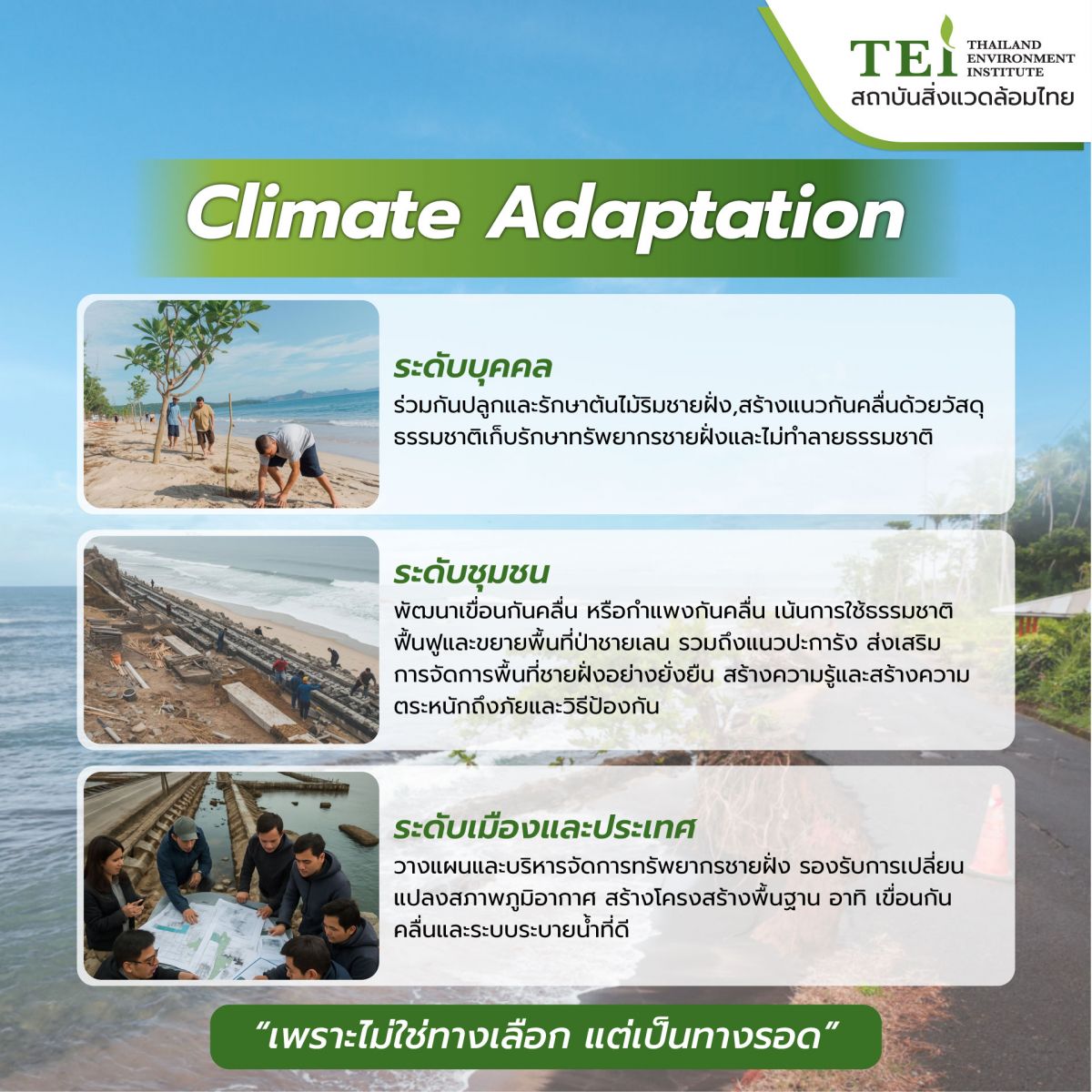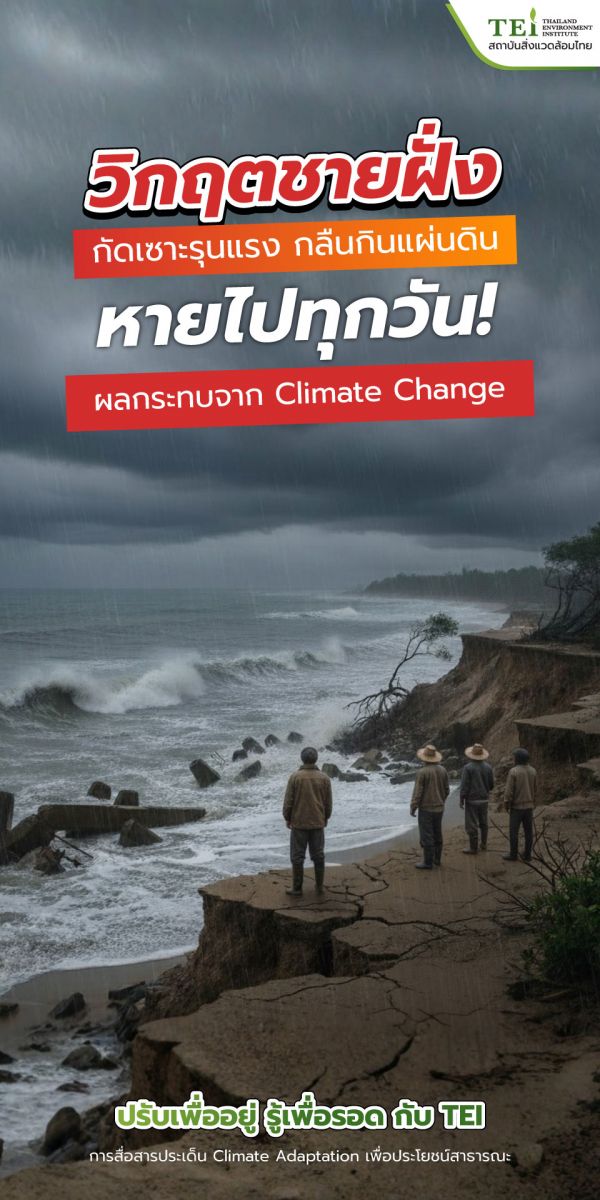
Thematic Areas: Climate Adaptation
Severe waves are eroding and swallowing the land, day by day!
This isn't a movie script, but the reality our coastlines are facing: severe and frighteningly rapid erosion. Experts are warning that this problem is accelerating at a critical rate.

What is accelerating coastal erosion?
'Global Boiling,' or 'Climate Change,' causing unpredictable weather shifts, is the main culprit. It is accelerating the problem of coastal erosion, increasing both its severity and the extent of affected areas beyond predictions.
Climate change impacts waves and coastlines in the following ways:
Rising Sea Levels: Over the last 100 years, sea levels have risen by more than 7 inches, causing coastlines to retreat faster (over 90 meters in some areas). This affects land structures and coastal buildings. It also increases the reach and power of ocean waves, as global heat melts glaciers and causes the thermal expansion of seawater.
Stronger Ocean Waves: Research indicates that average wind speeds have increased by 1.5 meters per second, and wave heights have risen by 30 centimeters over the past 33 years, especially in the Southern Ocean. This is a direct result of climate change, leading to more powerful waves.
Impact on Coastlines: The movement of sediment and more intense storms lead to severe and continuous coastal erosion, particularly in areas where coastal development and human activities have disrupted the natural balance.
How have Thailand's coastlines been damaged?
Loss of Land: Over 830 km of Thailand's coastline (or 26% of the total) has been lost to erosion.
Impact on Over 12 Million People: Coastal communities (e.g., Hua Sai District in Nakhon Si Thammarat, Bang Khun Thian in Bangkok, or Phra Samut Chedi in Samut Prakan) are losing their homes and livelihoods, forcing them to relocate. Traditional ways of life are disappearing.
Economic Devastation: Tourist attractions like beaches are being destroyed, impacting infrastructure, fisheries, and coastal agriculture. Community income is declining.
Ecosystem Collapse: "Natural barriers" like mangrove forests, coral reefs, and seagrass beds are being destroyed. This impacts the ecosystem (e.g., food shortages for dugongs) and leaves the coast even more vulnerable to erosion.
Erosion of Quality of Life: People face stress and uncertainty from the loss of property and life security.
The Only Way Forward is to "Adapt and Change," Following the Principle: "Adapt to Live, Know to Survive"
Coastal erosion is one of the most visible crises of Climate Change, and our only path to survival is to 'adapt' to live with this new reality. The Thailand Environment Institute (TEI), as an organization dedicated to communicating Climate Adaptation issues for the public good, recommends the "Adapt to Live, Know to Survive" approach to tackle coastal erosion at all levels—from individuals and communities to the national level:
Individual Level
Join in planting and conserving coastal trees, like mangroves, to help trap sediment and reduce wave energy.
Build breakwaters using natural materials like bamboo fences, branches, or rocks to help reduce wave impact.
Conserve coastal resources and protect nature, such as by avoiding excessive sand dredging or land reclamation without proper impact analysis.
Community Level
Develop permanent breakwater systems, such as seawalls or revetments, designed appropriately for the local conditions and emphasizing Nature-based Solutions.
Restore and expand mangrove forests and coral reefs to act as natural barriers against waves.
Promote sustainable coastal management, such as planning to avoid construction near vulnerable coastlines.
Build knowledge and awareness of the dangers and prevention methods, including monitoring and warning systems for the community.
City and National Level
Plan and manage coastal resources to accommodate climate change, such as by creating hazard maps and storm warning systems.
Build durable and resilient infrastructure, such as seawalls and efficient drainage systems.
Promote research and apply new innovations to alleviate the problem, such as using environmentally friendly breakwater materials.
Foster cooperation between countries and relevant agencies for management and knowledge exchange.

The Thailand Environment Institute (TEI) invites everyone to learn these adaptation guidelines under the principle of "Adapt to Live, Know to Survive." This will help ensure the safety of coastal societies, prevent future damage from erosion, and allow communities and coastal nature to coexist more sustainably.

Share: